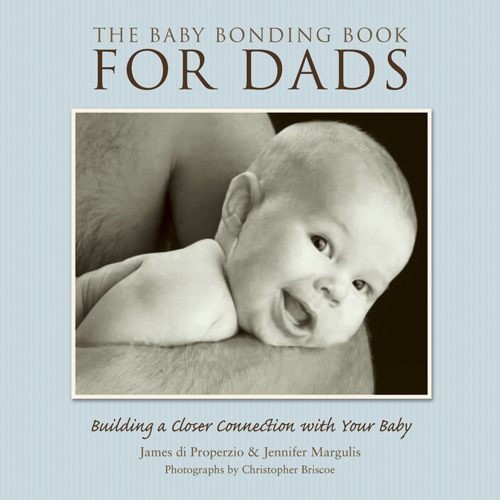
This post is written by Tara Rose Crist.
The Baby Bond Begins In The Womb: Slow Down To Love And Be Loved.
“Babies are exquisitely sensitive to their surroundings in the womb… Babies do not live in a fortress but in a mother. If she is assaulted, babies will learn about violence; if she is generously loved, babies will learn about love.” David B. Chamberlain, Ph.D.
Recently I attended a neonatal resuscitation workshop held by Karen Strange, a midwife, lecturer, and educator from Colorado. While there were no male attendees -- as most were midwives, doulas, and mothers -- much of the information is valuable to ALL parents, especially dads.
In addition to teaching the fundamentals of resuscitation, Strange presents several days worth of pregnancy, birth, and parenting info in eight hours. The underlying theme of her work and teaching style is one of making contact.
So, how can we best connect to our babies, even while they are in utero?
First we have to connect with ourselves. We must learn to be present and slow down. What? Slow down? You have 20 million things to do, right?!
But it just takes a minute to BREATHE. Feel your feet on the floor. Feel your fanny in the chair. Look at your surroundings.
Do you feel a little slower? A little more aware?
When we slow down, we are more present. And when we are present, we can connect more deeply with others, including our children -- even when they are in the womb -- and our spouses.
Strange argues that a baby feels what its mother feels and experiences what its mother experiences. All that the mother senses stimulates the release of chemicals in her body, and the baby lives in this constant flux of the mother's experience and chemistry. Babies drink and bathe in their mother’s thoughts, sensations, and hormones. They also sense what is happening outside the womb. As Strange puts it, to a great degree “babies are their mothers.”
So a father's relationship with the baby begins with his relationship to the mother and the baby while the baby is still in the womb.
When oxytocin is released in the mother -- whether it be from chocolate, exercise, sex, a back rub from her partner, or anything else pleasurable -- it has a natural calming effect on the fetus.* So, not only is it important for the expectant mother to slow down, love her baby, and do things that are pleasurable to her, but the baby can feel its father’s presence too. A baby can feel papa’s love, as it can feel papa’s love for the mother and mama's pleasure.
Say hello to the baby, build a relationship during gestation, be loving to your wife. Your baby will feel it too.
For more information, visit Strange's Web site: NewbornBreath.Com.
Another helpful resource is the website for The Association for Pre- and Perinatal Psychology and Health. APPPAH’s vision is to illuminate “the life-long impact of conception, pregnancy and birth on babies, families and society.”
* It has been reported that the more peace and pleasure an expectant mom experiences, the calmer the baby is when it arrives OUTSIDE the womb. Just as body development occurs in the womb, personality development begins there too. But, on the flip side of this, some doses of stress hormones in the mother’s body are normal and even important, as they prepare the baby for the normal challenges of living life on earth. Best for all involved, however, is if the love hormones outweigh the stress ones.
 Tara Rose Crist is currently completing a degree in English at Southern Oregon University (SOU). She is also a doula in training and an avid equestrienne.
Tara Rose Crist is currently completing a degree in English at Southern Oregon University (SOU). She is also a doula in training and an avid equestrienne.



